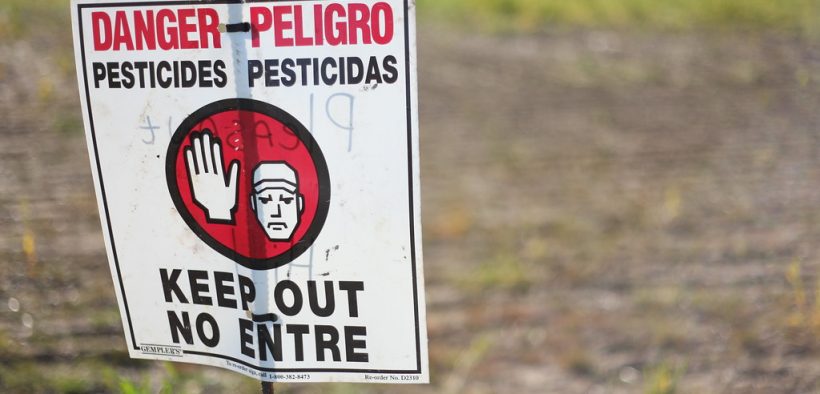EPA Proposes Changes To Rule Protecting People From Pesticides

“The EPA’s proposed rule will make it more likely that people who live and work on or near farms will be sprayed with dangerous pesticides.”
Environmental experts are sounding the alarm against the Trump administration’s pesticide policies, including a recent EPA proposal to roll back protections for people near farm boundaries at risk of exposure to toxic chemicals and pesticides, which they argue will put the public at increased risk of developing serious health problems.
The proposal would shrink the Application Exclusion Zone (AEZ) for many common types of pesticide application by more than 90%, according to the Environmental Protection Network, and would allow spraying even when a person is within the AEZ. The proposal would also exempt property owners’ immediate family members from protection against pesticides.
“EPA’s proposed rule will make it more likely that people who live and work on or near farms will be sprayed with dangerous pesticides,” William Jordan, former Deputy Director in EPA’s Office of Pesticide Programs, told Citizen Truth over email. “EPA is planning to repeal a simple, common-sense measure that requires farmers to stop spraying a pesticide when they see someone so close to their application equipment that they would be sprayed.
Briefly stopping an application will give a person a chance to move away before they get sprayed.”
Mr. Jordan is now a volunteer with the Environmental Protection Network (EPN), a group of almost 500 former EPA officials who are dedicated to providing “an informed and rigorous defense against efforts by the Trump administration to undermine EPA’s mission to protect public health and the environment.” The EPN submitted comments to the Trump administration earlier this month in opposition to the pesticide rollbacks.
A study published earlier this month by the Environmental Working Group expanded on the consequences of the Trump administration’s pesticide policies, finding that the EPA has largely failed to enforce the 1996 Food Quality Protection Act (FQPA), which placed strict regulations on the permissible amount of pesticides in food. The study found that only five of 47 non-organophosphate pesticides included in the survey met the safety standards outlined in the FQPA, which was designed especially to protect children, whose developing bodies are more vulnerable to exposure from pesticides.
Another recent study published in the same journal, Environmental Health, found the U.S. to be behind “other agricultural nations in banning harmful pesticides and suggested that pesticide bans can catalyze the transition to safer alternatives.”
Jordan said the EPA has not provided a good argument for its November proposal to slash the pesticide protection, which advocates argue is driven by the agency’s dedication to serving corporate interest rather than public health.
“EPA has completely failed to offer a good reason for making its change. It says, without explanation, that suspending a pesticide application for a minute would be ‘burdensome’ and that doing so would provide no added protections. EPA reached exactly the opposite conclusion just a few years ago.”
The pesticide rollback would join a long list of the Trump EPA’s slashed environmental regulations, joining asbestos, coal ash, chlorpyrifos, glyphosate, methane, chemical disaster, and carbon emission deregulations, as well as efforts to restrict science used in public policy.
Despite campaign promises to ‘drain the swamp’, President Trump filled his cabinet with more corporate lobbyist in three years than Bush or Obama did in two full terms. These include coal and oil & gas lobbyists at the head of the EPA and Interior department, as well as a host of alumni from chemical and agrichemical giants like DowDupont and MonsantoBayer.







